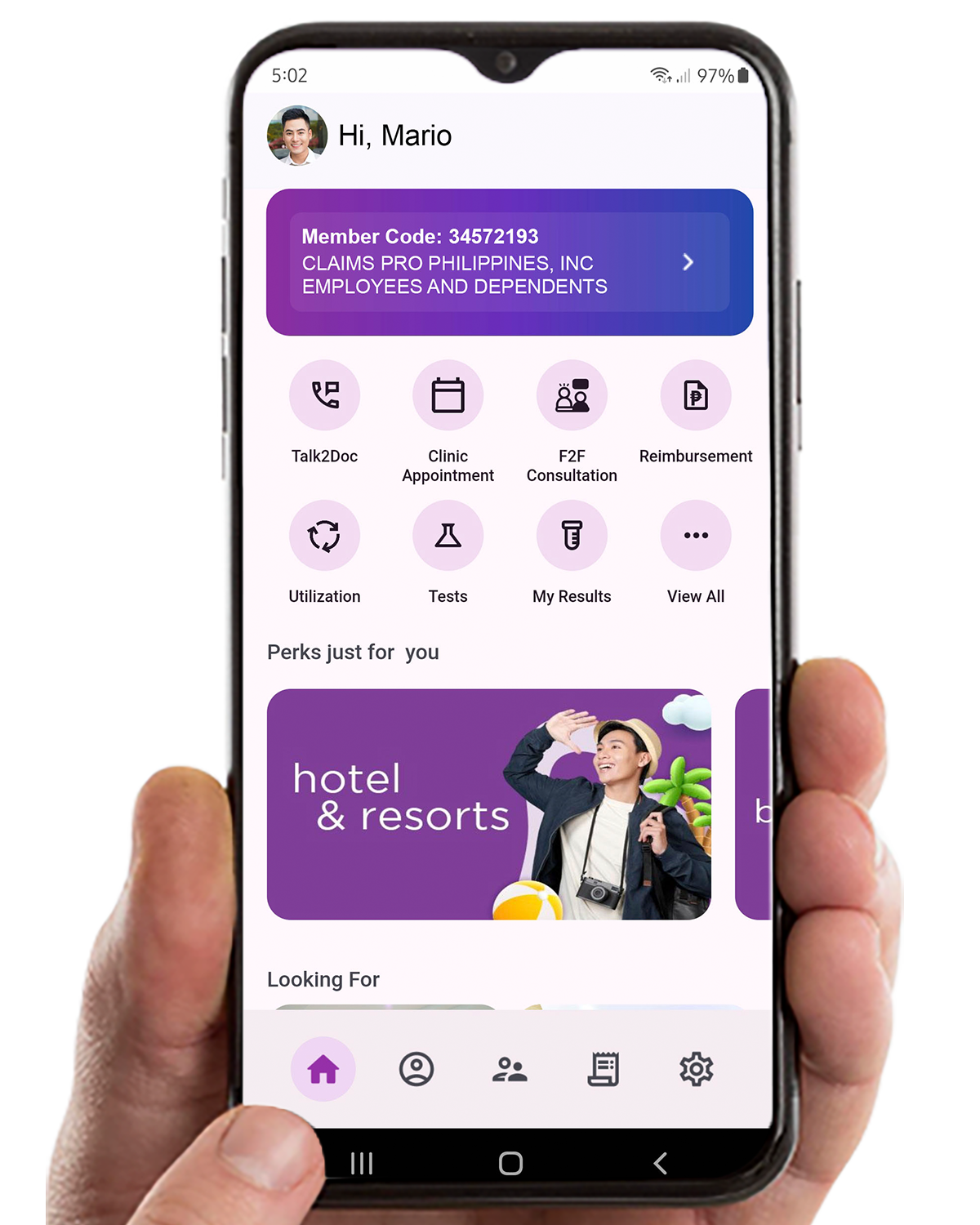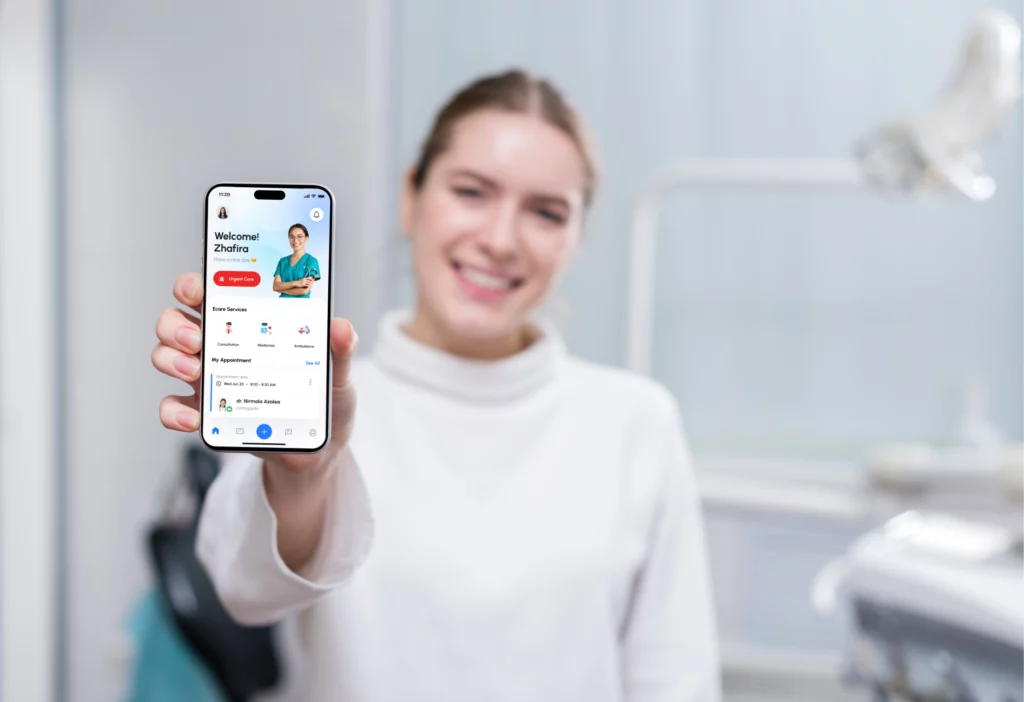A Total Guide to Selecting the most effective Mobile App for Clinics in 2024
A Total Guide to Selecting the most effective Mobile App for Clinics in 2024
Blog Article
The Future of Medical Care: Why Clinics Required a Mobile App Today
As the medical care landscape continues to advance, facilities face installing stress to adjust to client assumptions for better convenience and accessibility. The assimilation of mobile applications can offer as an important strategy for boosting person involvement and simplifying operations.
Altering Patient Assumptions
As the landscape of health care evolves, individual assumptions are undergoing a considerable makeover. Today's clients are progressively seeking comfort, availability, and personalized care.
In addition, clients are coming to be extra educated and empowered, frequently investigating therapies and problems on the internet before consultations. This increased understanding is paired with a need for openness in healthcare processes, including cost quotes and treatment alternatives. As a result, companies are obliged to adjust by adopting electronic tools that improve the client experience.
The assumption for reliable and timely interaction has never ever been greater, with numerous people thinking about responsiveness a vital part of high quality treatment. mobile app for clinics. In this progressing landscape, medical care companies must acknowledge these altering assumptions and utilize mobile applications to promote an extra patient-centric method, guaranteeing that they not only fulfill yet surpass the standards set by today's educated customers
Enhancing Patient Interaction

Mobile applications promote interaction between individuals and healthcare suppliers, enabling real-time appointment scheduling, pointers for medicine adherence, and straight messaging functions. These performances not only improve ease but also develop a sense of liability amongst people. Mobile applications can offer academic content tailored to specific needs, helping clients much better understand their conditions and therapy choices.
The combination of gamification elements within medical care applications can additionally inspire clients to engage in healthy and balanced behaviors, reinforcing positive way of life adjustments. Eventually, improving client involvement via mobile applications leads to enhanced wellness end results, better individual complete satisfaction, and a much more collective health care experience.
Enhancing Center Operations
Streamlining facility operations is vital for improving process effectiveness and optimizing individual care. The application of mobile applications can dramatically decrease management burdens, permitting healthcare suppliers to focus more on patient interactions. By automating consultation scheduling, patient check-ins, and invoicing processes, clinics can decrease wait times and boost total operational effectiveness.
Mobile apps also facilitate real-time accessibility to person records, allowing healthcare experts to make educated decisions rapidly. This immediacy not only improves Recommended Site the top quality of treatment but likewise lowers the probability of mistakes connected with lost or outdated information. In addition, leveraging mobile innovation supports an extra organized technique to managing individual follow-ups and therapy strategies, making certain that no important actions are neglected.
In addition, mobile apps can enhance supply monitoring by offering clinics with tools to keep track of medications and materials efficiently. This enables prompt replenishment and aids prevent disturbances in client care due to equip scarcities. By integrating these performances right into their day-to-day operations, centers can create a more effective and cohesive environment, ultimately causing improved client outcomes and fulfillment. Welcoming mobile innovation is not simply a trend; it is a required development in the healthcare landscape.
Improving Communication Networks
Effective interaction is frequently pointed out as a cornerstone of high quality health care shipment. In today's busy clinical atmosphere, mobile applications can significantly boost interaction networks between clinics, individuals, and healthcare carriers. By integrating mobile apps into their operations, facilities can help with real-time interactions, ensuring that individuals get timely information regarding their consultations, test results, and treatment strategies.
Mobile applications additionally empower clients to interact straight with their healthcare teams via safe and secure messaging functions. This straight line of communication promotes a feeling of involvement and permits immediate explanation of issues, which can bring about far better adherence to treatment procedures. Additionally, push notifications can advise people of upcoming appointments or medicine routines, decreasing no-show rates and improving total wellness end results.
Remaining Competitive in Healthcare
In a swiftly evolving health care landscape, organizations need to focus on development and adaptability to preserve an one-upmanship. The integration of mobile applications into health care solutions is no more optional; it is essential for clinics intending to boost person engagement, improve procedures, and improve overall solution distribution.
As individuals significantly depend on electronic platforms for wellness monitoring, facilities that stop working to take Click This Link on mobile innovation threat dropping behind. A well-designed mobile app can use functions such as appointment scheduling, telemedicine examinations, and access to medical documents, supplying individuals with ease and cultivating commitment.

Competitors are likewise investing in mobile options, so remaining in advance requires continual improvement and remaining educated regarding technical innovations. Facilities should not just execute mobile applications yet additionally participate in normal updates and improvements. Eventually, the successful combination of mobile modern technology will certainly differentiate forward-thinking healthcare organizations and established the standard for patient-centric treatment in an electronic world.
Final Thought
In verdict, the assimilation of mobile applications in facilities is important to attend to the advancing landscape of individual assumptions. Ultimately, the critical implementation of mobile applications stands for an important action towards providing accessible and tailored medical care, therefore meeting the demands of today's encouraged clients.
Eventually, enhancing client involvement via mobile applications leads to enhanced health and wellness outcomes, higher individual satisfaction, and an extra collective health care experience.Mobile apps additionally promote real-time accessibility to client records, enabling healthcare specialists to make informed choices swiftly. In today's busy medical environment, mobile applications can dramatically pop over to this web-site improve communication channels between centers, clients, and medical care carriers.Mobile apps likewise equip patients to connect directly with their medical care groups with safe and secure messaging features. Eventually, the critical implementation of mobile apps represents an important action toward providing available and tailored health care, consequently meeting the demands of today's empowered patients.
Report this page